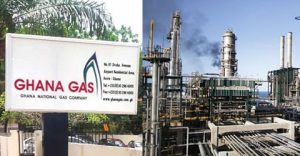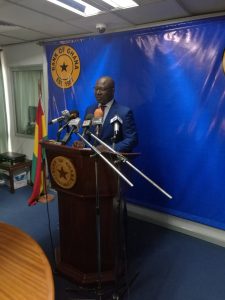 THE drastic reduction of crude oil from $115 per barrel to about $80 on the world market has compelled the opposition New Patriotic Party (NPP) to urge the government to reduce fuel prices accordingly.
THE drastic reduction of crude oil from $115 per barrel to about $80 on the world market has compelled the opposition New Patriotic Party (NPP) to urge the government to reduce fuel prices accordingly.
The Deputy Minority Leader in Parliament, Dominic Nitiwul, who is leading the crusade, insists that the government’s excuse of using the money to settle its debt with the Bulk Oil Distribution Companies (BDCs) was “very poor.”
Speaking to Citi FM, an Accra-based radio station, Dominic Nitiwul stated: “I don’t expect that because there are other recoveries, the National Petroleum Authority (NPA) should continue to charge high prices that they do not deserve.”
Mr. Nitiwul, who is the Member of Parliament (MP) for Bimbilla in the Northern Region, opined that the prices of fuel must be reduced to meet the realities on the ground.
According to him, per the drop in crude oil prices, fuel should sell at GH¢7 a gallon, as against the current GH¢15 per gallon at the pumps.
He is of the view that Ghanaians are burdened with economic hardships, and since the price of fuel affects everything, it was imperative that the NPA consider a downward review.
However, the NPA says it won’t reduce prices of petroleum products, despite the record drop in crude oil prices on the world market.
The NPA, in October, reduced petroleum prices by two percent during its bi-weekly fuel prices review.
The Chief Executive of the NPA, Moses Asaga, at the launch of the annual Consumer Week celebration, told journalists that the two percent reduction of petroleum price cost the government GH¢10 million.
The 2 percent reduction is something significant, which the consumer has benefitted from, according to him.
The Head of Communications of the NPA, Yaro Kasambata, told Joy FM, another Accra-based radio station: “We haven’t contested the fact that the prices have dropped. We haven’t, in any way, contested that it ought to reflect the reality at the pump.
“We have only said that we just need to take advantage of the drop in the prices to deal with some of the debt that had not been paid.”
African Eye News gathered that the NPA is indebted to the BDCs to the tune of about GH¢400 million. But Mr. Kasambata did not tell exactly how long it will take the NPA to pay the debt owed the BDCs.
The drop comes at a time when the Ghanaian cedi has recorded relative stability against the US dollar, which is used for crude oil imports.
In line with the automatic price adjustment formula, the NPA is required to increase prices on the local market when the value of the cedi falls, and the price of crude oil appreciates on the international market.
But, looking at the crude oil price on the international market, the elements in the adjustment formula have changed drastically in the last few months.
Also, the value of the cedi, which affect prices at the pumps, has appreciated 15 percent over the last two months.
The African Center for Energy Policy (ACEP), a leading energy think-tank in Ghana and beyond, has thrown its weight behind the Minority’s call to further reduce fuel prices.
The Director of Research of ACEP, John Peter Amewu, explained to the two radio stations in Accra that the NPA’s refusal to reduce fuel prices was indicative that the government was being insensitive to the needs of Ghanaians.
REVENUE SHORTFALLS
According to the Bank of Ghana (BoG), preliminary fiscal data for January to September 2014 indicate that both revenue and expenditure were below their respective targets for the period.
The shortfall in revenue was, however, lower than the shortfall in expenditure. Total revenue and grants realised was GH¢17.7 billion (15.4% of GDP), falling short of the target of GH¢18.4 billion (16% of GDP).
The shortfall in government receipts was partly due to lower import volumes, decline in commodity prices, including oil, particularly gold, on the world market, and the slowdown in economic activity, arising from energy challenges, the Governor of the BoG, Dr. Henry Wampah, explained.
Total expenditure, including payments made for the clearance of arrears and outstanding commitments, was GH¢24.4 billion (21.3% of GDP), compared with the budgeted ceiling of GH¢25.8 billion (22.5% of GDP).
Compensation of employees summed up to GH¢7.6 billion, against a budget target of GH¢8.1 billion. Interest payments also totalled GH¢4.9 billion.
As a result of these developments, the overall budget balance for the review period registered a deficit of GH¢6.7 billion, equivalent to 5.9 per cent of GDP, against a target of 6.4 per cent.
The deficit was financed from external and domestic sources – GH¢4.7 billion and GH¢2 billion from external and domestic sources respectively.
African Eye News.com





